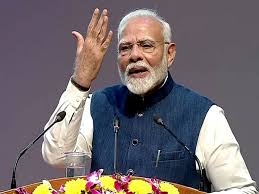
Prime Minister Narendra Modi engaged with the country’s police and intelligence leadership during the second day of the closed-door annual security conference in Bhubaneswar on Saturday. The discussions focused on strengthening India’s internal security and addressing a wide range of national security challenges.
According to sources familiar with the details of the conference, the key issues deliberated upon included the use of technology by anti-India forces to disrupt the country’s growth, conventional threats such as cross-border terrorism and smuggling, radicalisation activities in the hinterland, and the growing concern of left-wing extremism. The Prime Minister reportedly shared his insights on various policing strategies, which will be communicated to states, Union territories, and central agencies for implementation over the next year.
The security chiefs also briefed PM Modi on the progress made in addressing security concerns raised at last year’s conference held in Jaipur. The Prime Minister expressed his satisfaction with the ongoing efforts and emphasized the need for a continued push towards modernising India’s police force to meet global standards. Modi has consistently urged police departments to work collaboratively and avoid functioning in isolation, emphasizing the importance of information-sharing and database connectivity to tackle crimes effectively.
Earlier, Modi took to his social media platform X (formerly Twitter), saying, “Had a productive first day at the DGP/IGP Conference in Bhubaneswar. Discussed various subjects on policing and security.”
Home Minister Amit Shah, who was also present at the conference, highlighted the need for special attention to be given to illegal immigration and cross-border criminal activities, particularly along the eastern borders with Myanmar and Bangladesh. The security agencies were urged to focus on these areas as part of their overall security strategy.
The conference also focused on the challenges faced in urban policing, especially incidents like disruptions to air services and schools/colleges due to threats on multiple platforms, as well as the rise in crimes where criminals impersonate law enforcement officers to carry out fraudulent “digital arrests.” Terrorism emanating from foreign soil and its support network within India was also a major topic of discussion.
A significant portion of the conference was dedicated to the status of implementation of the new criminal laws—the Bharatiya Nyaya Sanhita (BNS), Bharatiya Nagarik Suraksha Sanhita (BNSS), and Bharatiya Sakshya Adhiniyam (BSA). These laws, which replaced the colonial-era Indian Penal Code (IPC), Criminal Procedure Code (CrPC), and Indian Evidence Act, came into effect on July 1, 2024. A detailed presentation on the training of police officers, prosecutors, and forensic experts was also provided to ensure that the implementation of these new laws is effective.
This year’s conference marks another step in PM Modi’s ongoing efforts to bolster India’s security infrastructure and enhance its policing capabilities, ensuring the country’s readiness to face contemporary security challenges.
Sources By Agencies

